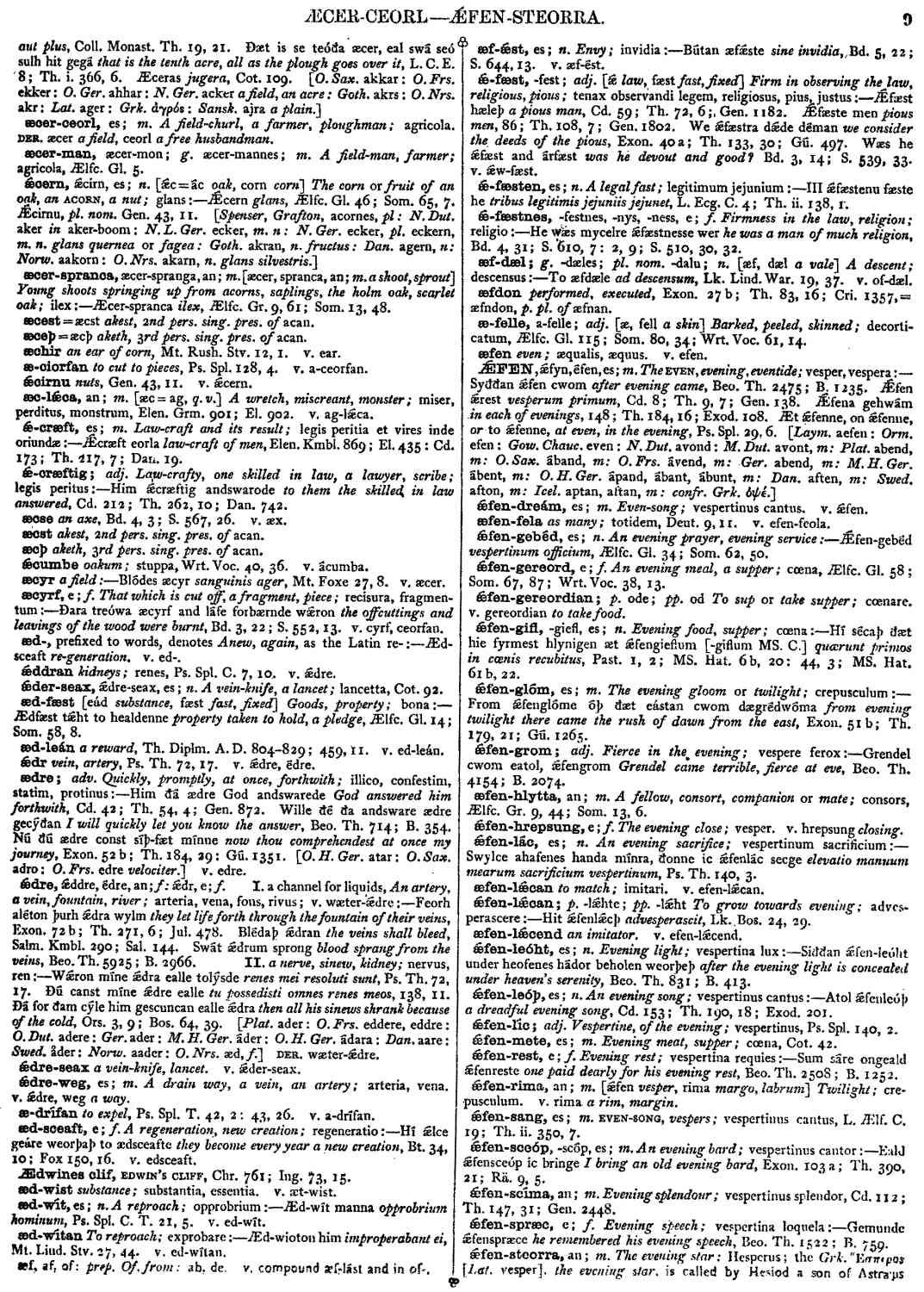ǽfen-steorra
- noun [ masculine ]
-
Se steorra ðe we hátaþ ǽfensteorra, ðonne he biþ west gesewen, ðonne tácnnaþ he ǽfen. Fǽrþ he ðonne æfter ðære sunnan on ðære eorþan sceade, óþ he ofirnþ ða sunnan hindan, and cymþ wið fóran ða sunnan up, ðonne háten we hine morgensteorra (q. v.) forðam he cymþ eástan up, bodaþ ðære sunnan cyme
the star which we call the evening star, when it is seen westwardly, then it betokens the evening. It then goes after the sun into the earth's shade, till it runs off behind the sun, and comes up before the sun, then we call it the morning star, because it comes up in the east, and announces the sun's approach,
- Bt. 39, 13; Fox 232, 34 .
-
Se móna, mid his blácan leóhte, dunniaþ ðone beorhtan steorran, ðe we hátaþ morgensteorra: ðone ilcan we hátaþ óðre naman, ǽfensteorra
the moon, with his pale light, obscures the bright star, which we call the morning star: the same we call by another name, the evening star,
- 4; Fox 8, 3 .
Bosworth, Joseph. “ǽfen-steorra.” In An Anglo-Saxon Dictionary Online, edited by Thomas Northcote Toller, Christ Sean, and Ondřej Tichy. Prague: Faculty of Arts, Charles University, 2014. https://bosworthtoller.com/416.
Checked: 1